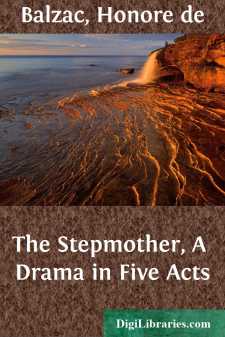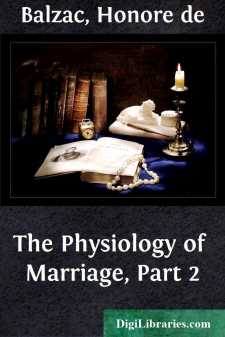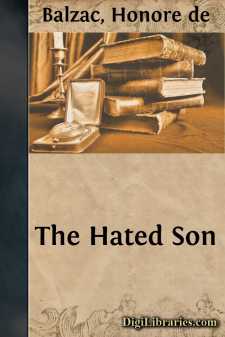Categories
- Antiques & Collectibles 13
- Architecture 36
- Art 48
- Bibles 22
- Biography & Autobiography 813
- Body, Mind & Spirit 141
- Business & Economics 28
- Children's Books 12
- Children's Fiction 9
- Computers 4
- Cooking 94
- Crafts & Hobbies 4
- Drama 346
- Education 46
- Family & Relationships 57
- Fiction 11826
- Games 19
- Gardening 17
- Health & Fitness 34
- History 1377
- House & Home 1
- Humor 147
- Juvenile Fiction 1873
- Juvenile Nonfiction 202
- Language Arts & Disciplines 88
- Law 16
- Literary Collections 686
- Literary Criticism 179
- Mathematics 13
- Medical 41
- Music 40
- Nature 179
- Non-Classifiable 1768
- Performing Arts 7
- Periodicals 1453
- Philosophy 64
- Photography 2
- Poetry 896
- Political Science 203
- Psychology 42
- Reference 154
- Religion 513
- Science 126
- Self-Help 83
- Social Science 81
- Sports & Recreation 34
- Study Aids 3
- Technology & Engineering 59
- Transportation 23
- Travel 463
- True Crime 29
A Start in Life
by: Honore de Balzac
Categories:
Description:
Excerpt
CHAPTER I. THAT WHICH WAS LACKING TO PIERROTIN'S HAPPINESS
Railroads, in a future not far distant, must force certain industries to disappear forever, and modify several others, more especially those relating to the different modes of transportation in use around Paris. Therefore the persons and things which are the elements of this Scene will soon give to it the character of an archaeological work. Our nephews ought to be enchanted to learn the social material of an epoch which they will call the "olden time." The picturesque "coucous" which stood on the Place de la Concorde, encumbering the Cours-la-Reine,—coucous which had flourished for a century, and were still numerous in 1830, scarcely exist in 1842, unless on the occasion of some attractive suburban solemnity, like that of the Grandes Eaux of Versailles. In 1820, the various celebrated places called the "Environs of Paris" did not all possess a regular stage-coach service.
Nevertheless, the Touchards, father and son, had acquired a monopoly of travel and transportation to all the populous towns within a radius of forty-five miles; and their enterprise constituted a fine establishment in the rue du Faubourg-Saint-Denis. In spite of their long-standing rights, in spite, too, of their efforts, their capital, and all the advantages of a powerful centralization, the Touchard coaches ("messageries") found terrible competition in the coucous for all points with a circumference of fifteen or twenty miles. The passion of the Parisian for the country is such that local enterprise could successfully compete with the Lesser Stage company,—Petites Messageries, the name given to the Touchard enterprise to distinguish it from that of the Grandes Messageries of the rue Montmartre. At the time of which we write, the Touchard success was stimulating speculators. For every small locality in the neighborhood of Paris there sprang up schemes of beautiful, rapid, and commodious vehicles, departing and arriving in Paris at fixed hours, which produced, naturally, a fierce competition. Beaten on the long distances of twelve to eighteen miles, the coucou came down to shorter trips, and so lived on for several years. At last, however, it succumbed to omnibuses, which demonstrated the possibility of carrying eighteen persons in a vehicle drawn by two horses. To-day the coucous—if by chance any of those birds of ponderous flight still linger in the second-hand carriage-shops—might be made, as to its structure and arrangement, the subject of learned researches comparable to those of Cuvier on the animals discovered in the chalk pits of Montmartre.
These petty enterprises, which had struggled since 1822 against the Touchards, usually found a strong foothold in the good-will and sympathy of the inhabitants of the districts which they served. The person undertaking the business as proprietor and conductor was nearly always an inn-keeper along the route, to whom the beings, things, and interests with which he had to do were all familiar. He could execute commissions intelligently; he never asked as much for his little stages, and therefore obtained more custom than the Touchard coaches....












